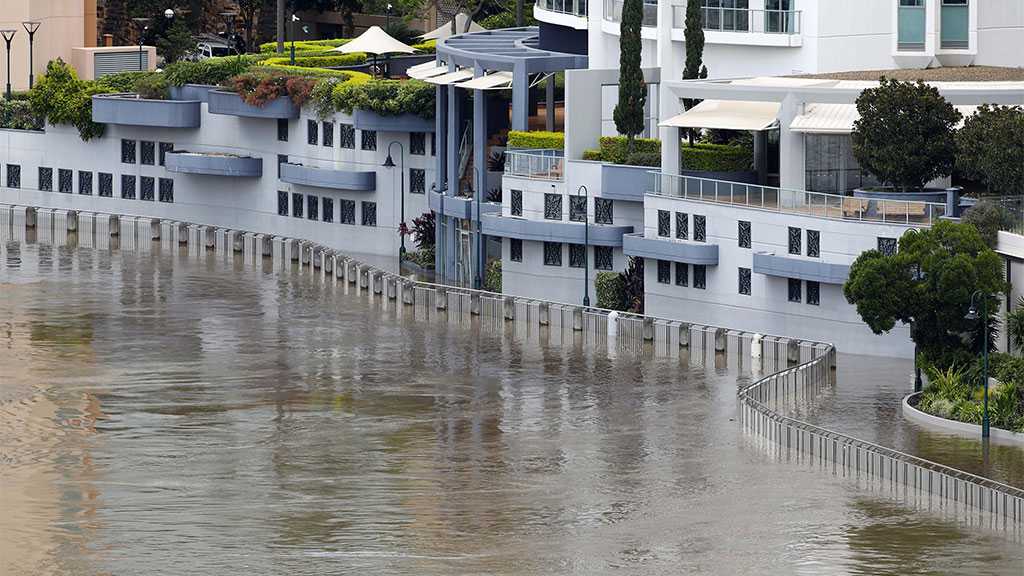
Thousands of Sydney Residents Asked To Evacuate As Heavy Rains Cause Flash Floods

By Staff, Agencies
Torrential rain pummeled Australia's east coast on Thursday with Sydney receiving nearly a month's rain overnight, turning suburban roads into rivers and triggering evacuations as authorities warn of more rain through the day.
A man swept away by floodwaters in the city's northwest was rescued by emergency crews, media reported, while television footage showed vehicles struggling to cross waterlogged streets, fallen power lines and trees, and debris floating in rivers.
Residents of a nursing home were evacuated overnight as emergency crews urged the harbor city's 5 million residents to avoid unnecessary travel and brace for possible evacuations.
Sydney has received 1,227 mm of rain so far this year, more than its average annual rainfall of 1,213 mm. Over the next 24 hours, many coastal towns could get up to 180 mm, the Bureau of Meteorology said.
The tourist hot spot of Bondi recorded around 170 mm over the 24-hour period to 9 a.m. Thursday, official data showed.
Thousands have been ordered to evacuate their homes while businesses cleared essentials to help mitigate their losses.
Overflow from a fuel pit at a site owned by oil refiner Ampol [ALD.AX] in Sydney's south caused oil to mix with flood waters but emergency crews said the spill has been contained and that there was no risk of danger in the area.
A severe weather warning stretched along the south coast of New South Wales over a distance of more than 600 km but conditions are expected to ease from Thursday evening, the weather bureau said.
Australia's east coast summer has been dominated by the La Nina weather phenomenon, typically associated with increased rainfall, for the second straight year, with most rivers at capacity even before the latest drenching. Warragamba Dam, Sydney's major water supply, is expected to spill over on Friday, authorities said.
Three intense weather systems in six weeks have pounded eastern Australia, with several parts of northern New South Wales and southeast Queensland clocking record rains and Sydney registering its wettest March on record.
Climate change is also widely believed to be a contributing factor to the severe weather, which has raised questions about how prepared Australia is.
Several towns across northern New South Wales are still battling to clear tons of debris after two separate devastating floods in March but the latest weather event has smashed the state's central and southern coast.



